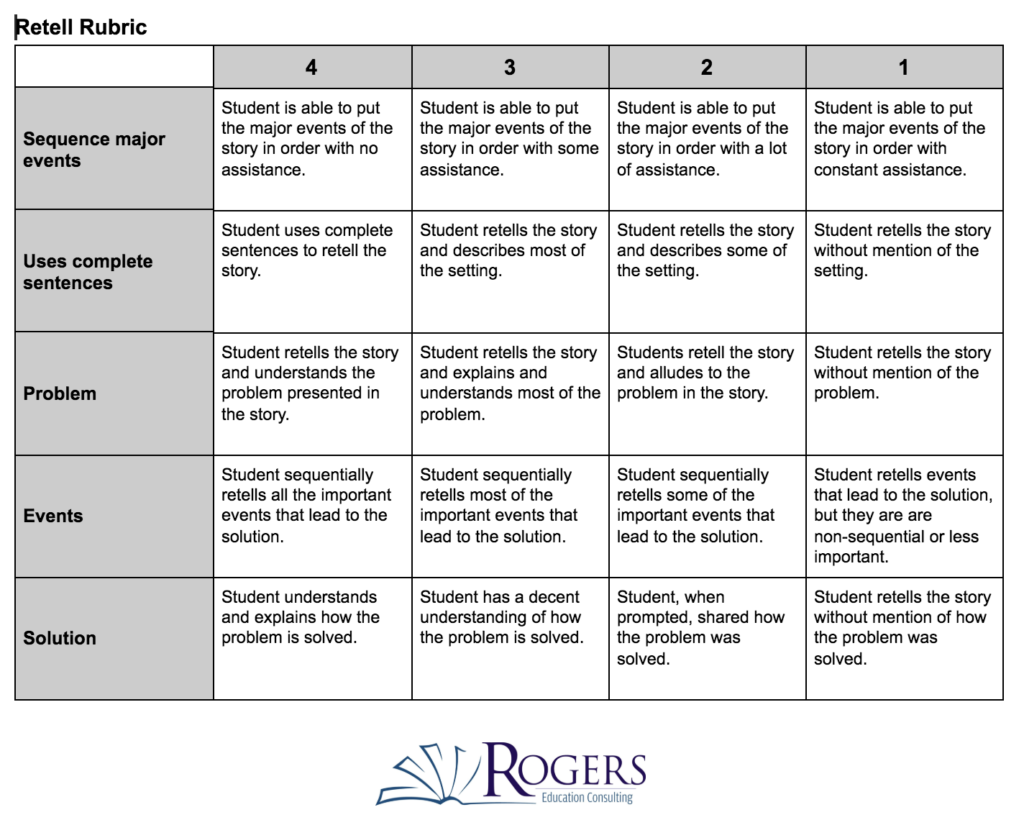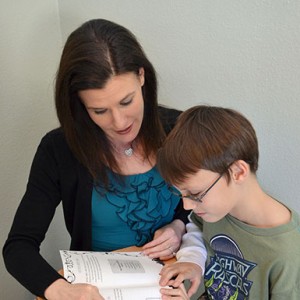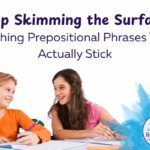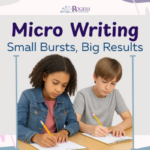 It’s time to be transparent with our students. Should it be a secret that we want them to ask more questions while they read? That we want them to read at a higher fluency level? That we want them to analyze the characters more closely? Obviously, the answer is no.
It’s time to be transparent with our students. Should it be a secret that we want them to ask more questions while they read? That we want them to read at a higher fluency level? That we want them to analyze the characters more closely? Obviously, the answer is no.
Have you ever tried to complete a project and not been informed of all the expectations? That sort of challenge does NOT make the project more fun! Trust me, the more information you have, the better you can perform. In the same way, students should know exactly what they are working on as they are reading because if they are more mindful of the skill they need to practice, they can practice it more specifically.
When I walk into classrooms and ask the students what they are working on, I want to hear things like: “I’m practicing visualizing what is happening in the story.” Unfortunately, what I hear most often is, “reading” or “finishing this assignment”. This response from the students lets me know they aren’t really sure why they are reading and their main goal is just to finish.
How can we help students develop self-awareness as readers and explain where they are in the process of becoming better readers? Feedback rubrics and goal setting!
I have started calling them “feedback rubrics” instead of just rubrics because it seems like rubrics have simply become more comprehensive vehicles for assigning a grade. The real power of the rubric comes in the information it shares with the learner. Take the following rubric for example. While this rubric is written more for the teacher, a similar rubric could help students see exactly what the teacher expects.
Instead of evaluating the student’s performance and returning the rubric as a final judgment, it can be used as a powerful teaching tool to invite students into the process of learning. By explaining the parts of the rubric to the students and helping them understand that a strong retell has all of these components, students are positioned to develop a deeper understanding of retelling. Additionally, you can help students take ownership of their own learning because they are aware of all your reading expectations.
 Once you mark a student on the rubric, meet with them one-on-one. Explain the rubric to them again and how their score lines up. Celebrate their accomplishments by explaining that if they earned a 3 in one area they have mastered 1 and 2! Don’t brush over this, that is a huge accomplishment! Then, for each of the rubric section, explain what they need to do to get to the next number, NOT the final number. If they are at a 2, explain what they must do to get a 3 next time. Next, ask the student which part they would like to work on.
Once you mark a student on the rubric, meet with them one-on-one. Explain the rubric to them again and how their score lines up. Celebrate their accomplishments by explaining that if they earned a 3 in one area they have mastered 1 and 2! Don’t brush over this, that is a huge accomplishment! Then, for each of the rubric section, explain what they need to do to get to the next number, NOT the final number. If they are at a 2, explain what they must do to get a 3 next time. Next, ask the student which part they would like to work on.
Perhaps a student scores all 2s on the rubric. When I meet with the student, he expresses an interest in improving the problem part of a story. Eventually, I want the student to be able to do all five parts of the retell strategy, so it honestly doesn’t matter which part the student begins with. Moreover, they are taking ownership of their learning and expressing what they would like to work on next.
Once the student chooses a learning target, it’s my job to teach them how to do it. I choose a strategy I have for the student. In this case, a way for him to identify the problem of the story. I teach it to the student, model how to do it with a story, and then guide the student while they try. I repeat why it’s important and how they should continue to work on the strategy. Always write that goal and strategy down for the student, so they remember. I like to have blank bookmarks on hand and write the goal and strategy of the bookmark for the student. That way they are looking at their goal every time they open their book! Now, this student has feedback from me and he sets a reading goal. The next time we meet, the first thing I will do is ask him how the strategy for finding the problem in a story is going and have him show me in his book.
This student now knows exactly what he’s working on and understands that it is a transferable skill to all texts he reads.


